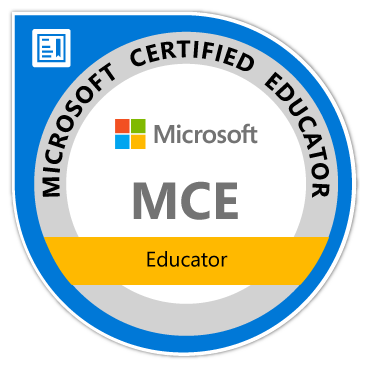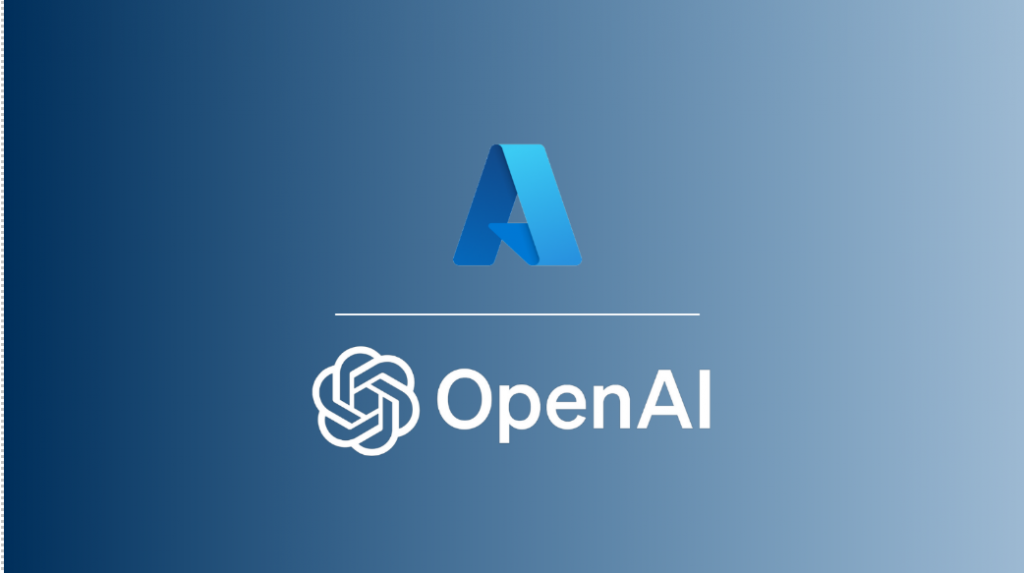Microsoft Certified Educator (MCE)
The Microsoft Certified Educator (MCE) certification validates that educators have the global educator technology literacy competencies needed to provide a rich, custom learning experience for students.
The MCE certification focuses on the integration of ICT (Information and Communication Technology) into teaching and learning. It’s based on the Technology Literacy approach of the UNESCO ICT Competency Framework for Teachers, ensuring that educators understand how to effectively apply technology tools in their teaching environments.
Career Accelerator Program
The training required for the Microsoft Certified Educator certification is comprehensive and focused on both theoretical frameworks and practical application. Microsoft provides all necessary resources through its Educator Center, ensuring that educators not only prepare effectively for the certification exam but also enhance their teaching practices with technology integration. This training is invaluable for educators looking to modernize their teaching approach and make their classrooms more dynamic and engaging through the use of technology.
Key Areas of Training
The training covers several key areas that are crucial for the MCE exam:
Understanding the UNESCO ICT Competency Framework for Teachers: This framework forms the basis of the MCE exam, and training materials are available to help educators understand and apply this framework in educational settings.
Education Policy and Leadership: Training in this area focuses on how technology can support educational policies and leadership practices to enhance learning.
Curriculum and Assessment: Educators learn how to design and implement a curriculum that leverages technology for better student assessment and outcomes.
Pedagogy: Training focuses on effective teaching practices that integrate technology, including strategies for managing digital classrooms and enhancing student engagement through technology.
Information and Communication Technology (ICT): This component covers the practical skills needed to use Microsoft Office tools effectively in teaching, including Word, Excel, PowerPoint, and OneNote, along with other educational technologies like Microsoft Teams and virtual learning environments.
Professional Development and Program Evaluation: Educators are trained on how to continue their professional development and evaluate educational programs using technology.
Creating a development program for aspiring Microsoft Certified Educators (MCE) involves structuring a series of educational and hands-on activities designed to enhance educators’ skills in integrating technology into teaching. The program should focus on preparing them for the MCE certification exam and practical application in their teaching environments.
Introduction to Educational Technology
Educators will understand the basics and importance of educational technology. The course begins with webinars on the history and evolution of educational technology, alongside an introduction to the UNESCO ICT Competency Framework for Teachers.
Deep Dive into the UNESCO ICT Framework
Educators will achieve a detailed understanding of the UNESCO ICT Framework’s six areas. Interactive sessions explain each area, supplemented by real-world examples and case studies. Participants engage in group discussions and complete a written assignment on applying the UNESCO ICT Framework in their teaching roles.
Technology Tools in Education
Educators learn about various technology tools for classroom integration. Workshops focus on practical applications of Microsoft Office 365 Education, various LMS, and educational apps. Participants undergo a practical test on setting up and integrating class tools using Microsoft Teams.
Curriculum and Assessment Design
Educators learn to design curricula and assessments that incorporate technology effectively. Sessions cover digital assessments, feedback tools, and curriculum development. Participants design a technology-integrated lesson plan for evaluation.
Pedagogy for Technology Integration
Educators will understand effective pedagogical strategies for technology integration. The focus is on blended learning models, flipped classrooms, and interactive learning strategies through workshops. A peer teaching session allows participants to apply these strategies in a mini-lesson.
Preparation for Certification and Future Planning
Prepare for the MCE certification exam and plan for future technology use in education. Includes review sessions, practice exams, and a strategic planning workshop for technology implementation. Participants take a final mock MCE exam and submit a project plan for technology integration in their own classrooms.
For educators, the Microsoft Certified Educator certification is not just about enhancing their resume but also about deeply integrating technology into their teaching to improve educational outcomes. It supports career development by opening up new roles and opportunities within the education sector and enhances their ability to adapt to the rapidly evolving educational environments.
To achieve the MCE certification, educators must pass the “Technology Literacy for Educators” exam (Exam 62-193). The exam focuses on six major content areas:
- Education policy
- Curriculum and assessment
- Pedagogy
- ICT/technology tools
- Organization and administration
- Professional development
The exam assesses educators on their ability to effectively use technology to enhance teaching and learning activities.
Career Opportunities
Earning the MCE certification can open several career opportunities:
- Enhanced Teaching Roles: Educators can leverage their certification to take on more technology-integrated roles within their institutions, such as technology coordinators or instructional designers.
- Professional Development Leaders: Certified educators may lead workshops or training sessions, helping other teachers integrate technology into their classrooms.
- Consulting Opportunities: There’s a demand for consultants who can advise educational institutions on how to integrate technology into their curricula effectively.
- Increased Marketability: This certification can make educators more attractive to schools that are increasingly looking to integrate more technology into their curriculum.
Benefits
- Professional Growth: The certification provides educators with the skills necessary to effectively incorporate technology into their teaching, which is becoming increasingly important in modern education.
- Recognition: Being a Microsoft Certified Educator is globally recognized and can enhance an educator’s professional credibility.
- Access to Resources: Microsoft offers resources and tools for certified educators, including access to learning platforms and educational content to further enrich their teaching environment.
- Community: Access to a community of other certified educators, which can provide support and share best practices.





